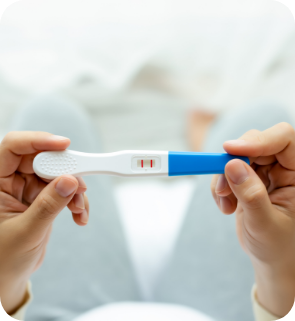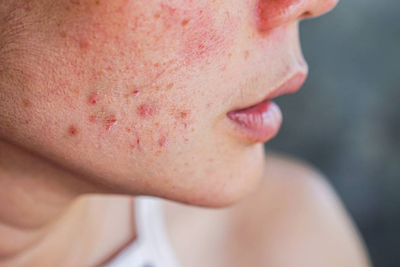
The 10 Best Supplements for PCOS
BEST PCOS SUPPLEMENTS FOR WOMEN
Almost every day I’m asked by my PCOS clients about what the best and most effective supplements for PCOS are. For the general public, supplements can play a minor role in helping them achieve their health and fitness goals, but due to the unique metabolic and hormonal environment in which PCOS can create, women with PCOS can hugely benefit from taking the correct supplements for them.
Supplements are part of the 5 Seeds PCOS lifestyle framework for taking control of your PCOS.
Here’s a reminder of the 5 Seeds PCOS lifestyle.
S - Stress reduction
E - Emotional health
E - Exercise
D - Diet
S - Smart supplementation
Often, doctors simply prescribe medications such as metformin or birth control to treat PCOS. And in some cases, these medications may help, but they are only ever a temporary mask for your PCOS symptoms and, come with potentially dangerous side effects.
The single most effective way to treat PCOS is through your lifestyle - that is, diet, exercise, and supplementation. Supplements can be an incredible way to quickly start taking control of your PCOS. Being smart with your supplementation will help you to control PCOS symptoms such as weight gain, hair loss, irregular menstrual cycles, excess hair growth, fertility issues, and poor energy levels.
HERE ARE THE 10 BEST SUPPLEMENTS FOR PCOS
1) INOSITOL
Inositol, often referred to as vitamin B8 - albeit not actually a vitamin, is by far the most well researched and evidenced back supplements for women with PCOS. The benefits of Inositol lie in its ability to help your body respond to insulin as normal. Thus, for any woman with PCOS who also has insulin resistance (70% of women with PCOS), inositol should be your first choice of supplements.
Due to its ability to help your body react to insulin as normal through its role as a secondary signal to insulin, it helps to reverse the symptoms of insulin resistance. These symptoms include menstrual cycle irregularities, weight gain, poor energy, cravings, fertility issues. Additionally, it improves ovarian function, increases egg quality, and reduces ovarian androgen production.
The great thing about Inositol is the fact that it’s super rare for you to get any side effects from it. In studies, dosages of up to 12 grams were found to be safe with only around 5% of women noting some mild digestive issues at this dosage.
My clients start taking 3-4 grams of inositol daily, but many take 6-7 grams per day without any issues.
2) MAGNESIUM
Magnesium plays a role in thousands of chemical reactions within the body and it is crucial for a healthy life. Studies show that many women with PCOS are actually deficient in magnesium, hence why supplementing with it can be so beneficial. I would actually recommend all women with PCOS to be supplementing with quality magnesium for general health.
Low magnesium levels are often associated with diabetes, a condition that women with PCOS are highly exposed to due to the majority of women with PCOS having insulin resistance - an early step of type II diabetes.
One study found that those who were insulin resistant and received 300 mg of magnesium at bedtime showed a significant improvement in fasting blood glucose and insulin levels, compared to subjects who received a placebo.
My clients are taking between 250mg - 500mg daily of magnesium.
Learn more about Healthy PCOS' Magnesium here.
3) VITAMIN D
It’s an alarming stat that 67% to 85% of women with PCOS are deficient in Vitamin D. It’s even more alarming when you learn that vitamin D deficiency is linked to cancer, fatigue, frequent sickness, bone loss, depression, back pain, muscle pain, and hair loss.
Vitamin D also plays a role in blood sugar balance and reproductive health. Numerous studies have shown that vitamin D deficiency has a negative impact on worsening the severity of PCOS symptoms.
Studies have noted that supplementing with Vitamin D and calcium resulted in weight loss, fertility improvement, menstrual cycle regularity, and follicle maturation.
My clients take between 250 iu to 600 iu daily of Vitamin D.
4) OMEGA-3
Omega-3 are the fatty acid found in salmon, sardines, mackerel, and seeds such as chia seeds or flax seeds. For women with PCOS, research shows that omega-3 supplementation can help to lower testosterone levels and regulate your menstrual cycle.
Omega-3 does this by increasing levels of sex hormone binding globulin (SHBG). SHBG is a protein that attaches itself to testosterone in your bloodstream rendering it inactive, unable to affect the tissues of your body. SHBG helps to keep testosterone levels normal but, in PCOS, many women have low levels of SHBG leading to excessive amounts of active testosterone in your system.
One study found that women with PCOS who were given three grams of omega-3s a day for eight weeks had lower testosterone concentrations and were more likely to resume regular menses than subjects who received a placebo.
Other studies with women with PCOS have found that omega-3 supplements resulted in reduced waist size, and decreased cholesterol levels.
My clients take between 500mg to 1,500mg daily.
Learn more about Healthy PCOS' Omega-3 supplement here
5) ZINC
Zinc is a mineral found in foods such as meat, fish, and legumes that helps grow and repair body tissues, supports the immune system, and helps many of the reactions that occur in the body.
Zinc’s benefit for women with PCOS is its ability to reduce testosterone levels. High testosterone levels in PCOS is responsible for symptoms such as hair loss, menstrual irregularity, fertility issues, acne, and excessive hair growth.
A portion of the testosterone in your system is converted into the far more powerful hormone DHT (di-hydro testosterone) and DHT is responsible for many of these unwanted symptoms of PCOS,
Zinc can actually reduce this conversion of testosterone into DHT and thus, reduce the symptoms associated with high testosterone levels.
I recommend taking between 10mg to 20mg of zinc daily.
Learn more about Healthy PCOS' Zinc supplement here.
6) N-ACETYL CYSTEINE (NAC)
N-acetyl cysteine is needed to make your body’s most powerful antioxidant: glutathione. It’s also vitally important for overall hormonal health.
NAC helps to improve the body’s insulin response, reduce testosterone levels, and helps to maximise egg quality. It has also been shown to improve ovulation and pregnancy rates for those with PCOS.
Other benefits of NAC supplementation found during studies have been; improves fasting insulin levels, reduces testosterone levels, weight loss, and reduces unwanted hair growth.
Another study comparing NAC supplementation vs. Metformin found that both treatments resulted in a significant decrease in body mass index, hirsutism, fasting insulin, free testosterone, and menstrual irregularity, and both treatments had equal effectiveness.
Furthermore, NAC led to a significant decrease in both total cholesterol and low-density lipoprotein levels, whereas metformin only led to a decrease in total cholesterol levels.
A systematic review published in Obstetrics and Gynaecology, involving eight randomised controlled trials with 910 women that compared the effects of NAC with placebo or metformin in women with PCOS, concluded:
- NAC had a significant improvement in pregnancy and ovulation rate as compared to placebo.
- Both NAC and Metformin improved BMI, total testosterone, insulin, and lipid levels compared to NAC.
- Compared with Metformin, NAC significantly reduced BMI, total testosterone.
- Compared with Metformin or placebo, NAC significantly reduced fasting blood glucose in women with PCOS.
The daily dosage of NAC is between 600 mg to 1,500 mg.
Learn more about Healthy PCOS' NAC supplement here.
7) L-CARNITINE
L-Carnitine has a range of benefits for women with PCOS, but a new study set out to look at L-Carnitine’s impact on some of PCOS key indicators.
One of those benefits reported was L-Carnitine's ability to improve regular menstrual cycles from 48.6% and 61.1% of the women before and after treatment, respectively. Best of all, none of the patients reported relevant side effects, either during or after the treatment.
L-Carnitine plays a vital role in glucose metabolism. Studies have found decreased carnitine levels in women with PCOS. This offers us stronger insights as to the correlation between low carnitine levels in PCOS, and hyperinsulinemia (high insulin levels).
As we know, chronically high insulin levels trigger the ovaries to over-produce androgen hormones -the leading driver of menstrual cycle issues for women with PCOS.
My clients take 1,500mg of L-Carnitine each day
Learn more about Healthy PCOS' L-Carnitine supplement here.
8) SAW PALMETTO
Saw palmetto is actually a palm tree native to the southeast regions of North America and especially abundant in Florida, Georgia, Cuba, and the Bahamas.
Saw palmetto helps to prevent male-like hair loss, also known as androgenic alopecia - a type of hair loss also known as male and female pattern baldness in men and women, respectively.
It’s thought to work by blocking the enzyme that converts testosterone to dihydrotestosterone (DHT) - one of the most potent androgens and is a major proponent in the masculine-presenting symptoms of PCOS. One study found that a high DHT to testosterone ratio is present in those diagnosed with PCOS, so any treatments that are able to normalise that ratio will help ease the condition.
Higher levels of androgen hormones like DHT are thought to shorten the hair growth cycle and lead to the growth of shorter and thinner strands of hair.
Saw palmetto appears to be most effective when taken in daily doses of 160–320 mg. It should not be taken if you're currently pregnant or breastfeeding. Always consult your healthcare provider before taking saw palmetto to ensure your safety and appropriate dosage.
Learn more about Healthy PCOS' Saw Palmetto here.
9) BERBERINE
Berberine is one of those supplements that is great for women with PCOS, especially if you have insulin resistance. Berberine is a compound in several plants, including goldenseal, barberry, Oregon grape, and tree turmeric that has been a part of Chinese and Ayurvedic medicine for thousands of years.
Many studies of berberine have indicated that it can treat several metabolic health conditions, including diabetes, obesity, and heart problems.
Inflammation is one of the root factors triggering PCOS. Some research suggests that berberine has anti-inflammatory properties. Studies have also found that it can have positive effects on blood sugar, triglycerides, and insulin.
One meta-analysis indicated that berberine was better than a placebo at lowering blood sugar. Another meta-analysis found that berberine combined with lifestyle changes, like diet and exercise, worked better to lower blood glucose than lifestyle changes alone.
In terms of body weight, one review reported that people who took 750 milligrams (mg) of barberry twice a day for 3 months had a significant decrease in weight. Barberry is a plant that contains high amounts of berberine.
The recommended daily dosage of Berberine is 1,00mg to 1,500mg.
Learn more about Healthy PCOS' Berberine supplement here.
10) CINNAMON EXTRACT
Cinnamon extract is a super helpful supplement for reversing insulin resistance which is why I have it in our insulin resistance bundle along side inositol and apple cider.
A study conducted at Columbia University showed that menstrual cycles were more frequent in women taking cinnamon compared with women taking placebo. Cinnamon has been found to have insulin-sensitising effects in both animal and human studies.
In a randomised, placebo-controlled study on women with PCOS demonstrated significant reductions in fasting glucose and insulin-resistance parameters after eight weeks of oral cinnamon extract.
I recommend taking 100mg of active cinnamon daily.
If you're still a little confused about which supplement is right for you, then take our Supplement Quiz below :)

















Can these supplements be taken with seizure meds? (lamotrigine & Topiramate)
Thank you
Leave a comment